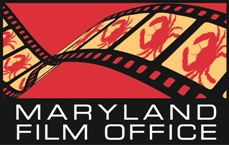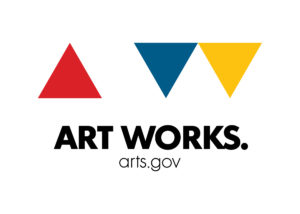By Jon Reiss, Hybrid Cinema

So it’s that intense festival time of year again. You’re considering festivals, applying to festivals and who knows perhaps already excited about the festivals you have been accepted to.
Here are 10 Do’s and 5 Don’ts when applying to film festivals. These suggestions are based not only on my own work with clients, but also from some amazing advice from some really knowledgeable folks who I have had the pleasure of being on panels with over this past year: Basil Tsiokis (SundanceFF/DocNYC), Tom Hall (Montclair FF), Dan Nuxoll (Rooftop Films), Omar Gonzales (PMK-BNC), Ania Trzebiatowska (Visit Films), David Nugent (Hamptons International FF), Milton Tabbot (IFP) But don’t hold them responsible for everything I say – I take full responsibility. I will follow up with another email on what to do when you get in and get there.
The Do’s:
- Only submit when you are sure the film is ready to be seen. You only have one shot with each festival. 99.9% of the time festivals will not re-watch a film if submitted in a previous year. It is hard enough to get them to look at a new cut in the same year you are submitting unless you are an alumni or are an established filmmaker or both.
- If you intend your film to be appreciated by an audience: test screen your film before you submit it and certainly before you lock picture. Don’t let film festival programmers be the first outside audience for your film and certainly not the festival audience. (I could digress but that would be a whole other post).
- Know your film Part 1: Research what festivals are best for your film. Look at the festival archives to see what their taste and programming is. Find similar previously released films and see where they played.
- Create a Database with the dates of the festivals, their various deadlines, fees, who you may know that knows them, why you would apply etc.
- Create a budget for submissions. It can add up very quickly.
- Have a sense of the festival cycle(s) that starts in late summer early fall with TIFF, Venice, Telluride, IDFA then the mini-Winter/Spring cycle starts with Sundance – the overarching fall to spring cycle pretty much ends in June with summer off. If you are finishing your film in winter you will need to evaluate whether to submit to the end of that years cycle or wait till next year.
- Submit to a variety of kinds of festivals. Apply to the solid regional and niche/genre festivals – there are many of them that are super worthy and would be great for your film. Women’s, LGBTQ, Jewish, African American, Horror, Environmental etc. However be cautious about your premiere.
- Have a strategy. If you feel your film has the chops for a top tier festival, apply to those – and then try for stronger regional and niche festivals. This is one of the toughest parts of devising a strategy, how long to wait to apply for non-top tier festivals. You want to be cautious about where you premiere – but you also don’t want to be a year in and still not have some festivals lined up!
- If you have advocates here are some guidelines:
- Make sure the advocate knows the film.
- Understand that this is a big ask – the advocate only has so many films they can lobby for – so is this the right thing you want to ask of that advocate? Are there other more important needs for your film.
- Understand that ultimately this advocacy mainly guarantees calling the film to the attention of the programmers. Despite rumors to the contrary – it doesn’t guarantee that a film will be accepted.
- Know Your Film Part 2: Your film may not be a festival film. Some films might have a better play at niche conferences than festivals – and this might result in more money and more audience connection and more opportunities to change the world than festivals. Don’t waste a full year festival cycle to find this out.

What Not to Do – The Don’ts:
- Don’t rush the film to make a deadline. The inverse of #1 above – but worth repeating. Don’t risk making a lesser film. The world is so competitive now with so much content – you need to focus on creating the best film possible no matter what.
- Don’t submit late: Meet an official deadline. Extensions are generally bad for a variety of reasons:
- Festivals give preference to films that have met their deadlines.
- Festivals will not guarantee they will look at the film.
- Films may have already become favorites – especially one that might be similar to your film – and already have a champion at the festival.
- Some films are already selected and it reduces your percentage of making it in.
- Extensions are extra work for the festival.
- This is especially true for first time filmmakers. If you have an experienced producer – perhaps – but still not a great idea.
- Don’t be secretive with film festival programmers. If you got into another festival that has a conflicting premiere status – don’t be coy with either festival – be upfront and tell the programmers who accepted your film. Ask for a few more days. The programmer won’t love it – but they will generally understand. It is best to call them and not email so that you can create a human connection.
- Don’t ask for fee waivers unless you are an alumni of the festival. You don’t want to start off your relationship with a festival asking them to work for free (which is what you are doing by asking for a fee waiver). If you get into a more prominent festival, you will probably start receiving invitations with fee waivers.
- Don’t try to talk to a programmer after you have submitted your film unless you know them well (in which case you probably wrote them an email). Understand that programmers are super busy during this time and it doesn’t do any good to try to talk to them to tell them what they already know from your submission. “My film is great and so and so is in it, its about such and such.” What do they say to that?
Communicate only when you have an update that is relevant for the festival such as being accepted into another festival that affects premiere status in some way.
I hope these tips and guidelines have been helpful. Next up a post on what to do at a festival once you get in.
If you have questions about the above – or need help in crafting your festival plan – feel free to reach out to www.hybridcinema.com. We are hear to help you.
Jon Reiss is a filmmaker, author and media strategist who wrote the book Think Outside the Box Office. Through his company HybridCinema he has advised hundreds of filmmakers and film organizations throughout the world including IFP, Paramount Studios, Screen Australia, Film Independent, Creative Scotland.
Film clients have included: Hooligan Sparrow, Maya Angelou: And Still I Rise, Food Chains, Off the Rails, Tyrus, The Transfiguration. He also co-wrote Selling Your Film Without Selling Your Soul and Selling Your Film Outside the US. He is the Senior Lab Leader at the IFP Filmmaker Labs. Join him on FB and Twitter or reach out through Hybridcinema.com

















